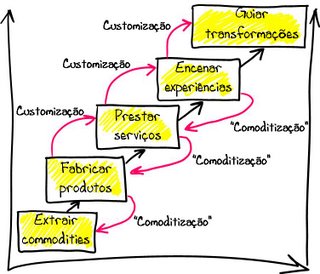"Inflation tends to be understood as higher prices resulting either from increased costs—global supply-chain issues and hard-to-find workers—or from increased demand, such as pent-up purchases, as well as easy monetary policy from the Federal Reserve and blowout spending from Congress. But there’s another significant factor at play: Price increases also arise from growth in the perceived value of economic offerings....Consumer values have shifted greatly over the years, most notably from goods and services to experiences. As I first argued on these pages in 1997 with my business partner, Jim Gilmore, experiences are a distinct economic offering, as different from services as services are from goods.Fundamentally, experiences offer time well spent. People value the time they spend in experiences, resulting in a memory (and, so often these days, a trail of social media posts)....Unfortunately, the government still classifies experiences as services. The latter, however, merely provides time well saved. The disparity in value is too profound between, say, going to a dry cleaner and a concert, between having your oil changed and changing your physique at a gym, between home delivery of goods and the spending the day with your family at a theme park....That’s why Walt Disney World outpaced measured inflation by so great a rate—because consumers value its experience more than the average market-basket good and are willing to pay much more for it relative to other offerings. This same effect is true for the myriad experiences that make up today’s “Experience Economy.”Consumers also value their time more highly than they used to. They want goods and services to be commodities—bought at the lowest possible price and greatest possible convenience—so they can spend their hard-earned money and their harder-earned time on experiences they value more highly."
domingo, janeiro 09, 2022
"Inflation and the ‘Experience Economy’"
Trechos retirados de "Inflation and the ‘Experience Economy’"
Subscrever:
Enviar feedback (Atom)


%2006.21.jpeg)













Sem comentários:
Enviar um comentário